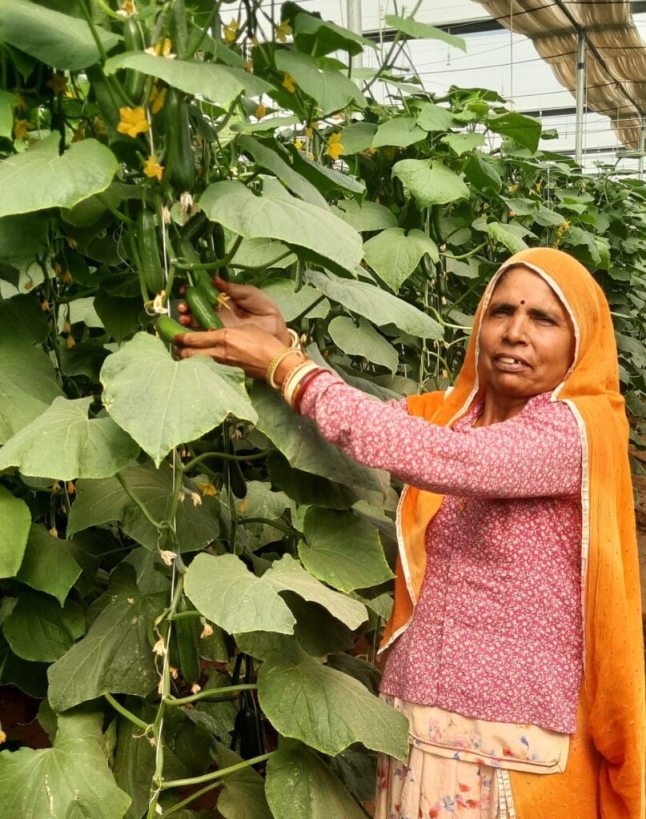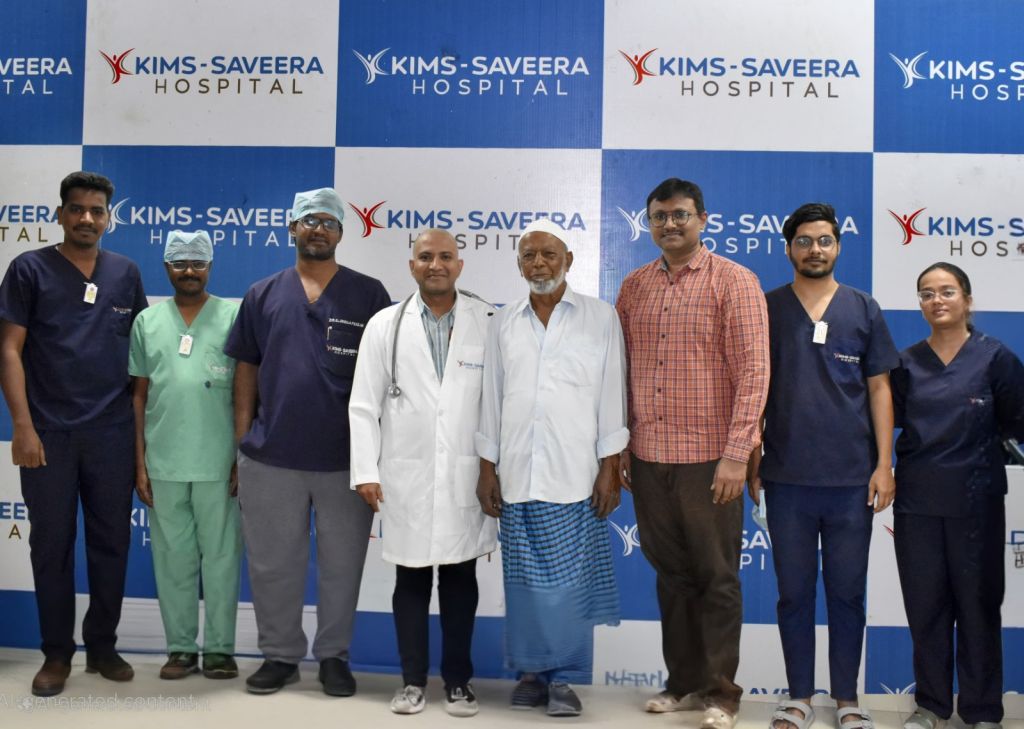
Cancer is a global health issue and among the leading causes of death worldwide. According to the World Health Organization, cancer leads to nearly one in six deaths worldwide. It is a term used for a large group of diseases with a defining feature of abnormal cell growth, usually beyond their boundaries and expected numbers. As per interactive session and inputs received from Dr Avinash Gupta, a senior Physician practicing in New Jersey, USA, with modern advancements in technology, the treatment of different kinds of cancer has come a long way. However, the most effective strategy for managing the global burden of cancer is effective prevention and early screening of cancers.Early detection of cancers usually leads to a better prognosis for the patient. Late stage metastatic cancer, or cancer that’s spread to other parts of the body, is much harder to treat. People with a diagnosis of stage 4 cancer have a 5-year relative survival rate.In comparison, those with stage 1 cancer have a 5-year relative survival rate of about 90 percent. There are a number of tests available today that can help detect early signs of cancer or even a predisposition to developing it. Recently With Government of India support AlIMS Delhi has set up National Cancer Institute, Jhajjar Haryana and Chief NCI reiterates in Public lectures that we are able to save Cancer patients if they come for consultation at early stage but India due to less awareness, no female disclose her small breast lump either to her husband or her father and moves to hospital at 4th/Last stage of cancer .Inadequate awareness and unavailability of screening modalities in developing countries lead to patients presenting with cancers at a later stage, which are difficult to treat and life-threatening. According to the American Cancer Society, healthy women/men should undergo periodic screening for breast, cervical, colon, prostate and other cancers.
Early signs of cancer
One of the best ways to fight the disease is to catch it in the early stages, when it’s more treatable. The problem is that the warning signs for many kinds of cancer can seem pretty mild.
Take a look at these signs and symptoms. Some are linked more strongly to cancer than others, but all are worth knowing about — and even talking over with your doctor.
1. Breast Changes
Symptoms of breast cancer include a lump in the breast, bloody discharge from the nipple and changes in the shape or texture of the nipple or breast. A cancer that forms in the cells of the breasts. Breast cancer can occur in women and rarely in men, However as per health journal reports, in 2017 alone, 2,470 men diagnosed with breast cancer. “Men tend to ignore breast lumps because breast cancer isn’t on their radar,” Meyers says, warning that in men those cancers are also, “diagnosed much later.” Don’t take any chances.
2. Problems during urination
Many men/women have some problems peeing as they get older, like:
- A need to pee more often, especially at night
- Dribbling, leaking, or an urgent need to go
- Trouble starting to pee, or a weak stream
- A burning sensation during urination
An enlarged prostate gland usually causes these symptoms, but so can prostate cancer. See your doctor to check on the cause of the problem. They’ll give you an exam to look for an enlarged prostate, and they may talk to you about a blood test (called a PSA test) for prostate cancer.
3. Blood in Urine or Stool
These can be among the first signs of cancer of the bladder, kidneys, or colon. It’s a good idea to see your doctor for any bleeding that’s not normal, even if you don’t have other symptoms, Lepor says. Although you’re more likely to have a problem that’s not cancer, like haemorrhoids or a urinary infection, it’s important to find and treat the cause.
4. Skin Changes
When you notice a change in the size, shape, or colour of a mole or other spot on your skin, see your doctor as soon as you can. Spots that are new or look different are top signs of skin cancer. You’ll need an exam and perhaps a biopsy, which means doctors remove a small piece of tissue for testing.
5. Changes in Lymph Nodes
Tenderness of swelling in your lymph nodes, the small bean-shaped glands found in your neck, armpits, and other places, often signal that something’s going on in your body. Usually, it means your immune system is fighting a sore throat or cold, but certain cancers can also trigger the changes. Have your doctor check any swelling or tenderness that doesn’t get better in 2 to 4 weeks, Meyers says.
6. Trouble Swallowing
Some people have trouble swallowing from time to time. But if your problems don’t go away and you’re also losing weight or vomiting, your doctor may want to check you for throat or stomach cancer. They’ll start with a throat exam and barium X-ray. During a barium test, you drink a special liquid that makes your throat stand out on the X-ray.
7. Heartburn
You can take care of most cases of heartburn with changes to your diet, drinking habits, and stress levels. If that doesn’t help, ask your doctor to look into your symptoms. Heartburn that doesn’t go away or gets worse could mean stomach or throat cancer. Heartburn can also lead to a condition called Barrett’s oesophagus, which occurs when stomach acid damages the lining of oesophagus. While it is rare, Barrett’s can make you more susceptible to developing throat cancer.
8. Mouth Changes
If you smoke or chew tobacco, you have a higher risk of mouth cancer. Keep an eye out for white, red, gray or yellow patches inside your mouth or on your lips. You could also develop a canker sore that looks like an ulcer with a crater in it. Talk to your doctor or dentist about tests and treatments.
9. Weight Loss without Trying
Pants fitting a little looser? If you haven’t changed your diet or exercise habits, it could mean that stress or a thyroid problem is taking a toll. But losing 10 pounds or more without trying isn’t normal. Although most unintended weight loss is not cancer, it’s one of the signs of cancer of the pancreas, stomach, or lungs. Your doctor can find out more with blood tests and tools that make detailed pictures of the inside of your body, like a CT or PET scan.
10. Fever
A fever is usually not a bad thing — it means your body is fighting an infection. But one that won’t go away and doesn’t have an explanation could signal leukaemia or another blood cancer. Your doctor should take your medical history and give you a physical exam to check on the cause.
11. Fatigue
Many types of cancer cause a bone-deep tiredness that never gets better, no matter how much rest you get. It’s different from the exhaustion you feel after a hectic week or a lot of activity. If fatigue is affecting your daily life, talk to your doctor. They can help you find the cause and let you know if there are ways to treat it.
12. Cough
In non-smokers, a nagging cough is usually not cancer. Most go away after 3 to 4 weeks. If yours doesn’t, and you’re short of breath or cough up blood, don’t delay a visit to your doctor, especially if you smoke. A cough is the most common sign of lung cancer. Your doctor can test mucus from your lungs to see if you have an infection. They may also give you a chest X-ray to check for another problem.
13. Pain
Cancer doesn’t cause most aches and pains, but if you’re hurting for more than a month, don’t just grin and bear it. Ongoing pain can be a signal of many types of cancer, including bone or brain cancer, especially those that have spread, Lepor says.
14. Belly Pain and Depression
It’s rare, but depression along with stomach pain can be a sign of cancer of the pancreas. Should you worry? Not unless this cancer runs in your family, Meyers says. Then you need to see your doctor.
Steps proposed to be initiated:Though as per ICMR Reports, Instances of All Cancer Cases are higher in Men than Women, if data is to be believed, Indian women are more prone to cancer as compared to men. Among females, gynaecologic cancers, including breast cancer (51 per cent), accounted for over half of all cancers.Steps proposed to be initiated as a part of Women cancer awareness campaign
- Recommendations for breast cancer:
Women older than 40 should have a mammogram every year. Women older than 55 can switch to a mammogram every two years or continue doing it yearly. Screening should be continued until the woman is in good health and is expected to live for another 10 years. Some women are considered at a high risk of breast cancer and should be screened with a breast MRI and mammogram yearly. MRI should be used in addition to, not instead of, a mammogram. This includes women who: ● Have themselves or have a 1st-degree relative been diagnosed with genetic cancer syndromes, like BRCA1 mutation, BRCA2 mutation, Li-Fraumeni syndrome, and others.
- Recommendations for cervical cancer.
Women older than 25 should have a cervical cytology test (commonly known as a Pap smear test) every 3 years. Alternatively, women older than 25 can undergo testing for high-risk human papillomavirus (hrHPV) every 5 years. Co-testing with cervical cytology and hrHPV test can also be done every 5 years. Screening should be continued till the age of 65 if the results of tests have been normal for the last 10 years. Cervical cancer is unique among cancers as most cases are caused by a virus known as the Human Papilloma Virus (HPV), and we have a vaccine for it. The Indian Academy of Paediatrics (IAP) recommends vaccinating all children, male and female, for HPV between the ages of 9-14 with two doses of the HPV vaccine. Children aged 15 and above can still be vaccinated for HPV but require three doses.
- Recommendations for colon cancer.
Patients have different options for screening tests for colon cancer. For average-risk individuals, people older than 45 should undergo screening tests. Colon cancer screening can be done by either a colonoscopy every 10 years, a flexible sigmoidoscopy every 5 years, or faecal occult blood tests every year. More frequent screening, every 3-5 years, may be required if colonoscopy reveals the presence of polyps. Screening should be continued until the age of 85. Some individuals are considered at a higher risk for colon cancers and have different screening recommendations. Individuals with one or more family members who have had colon cancer need to be screened with a colonoscopy starting at age 40 or 10 years before their relative got diagnosed with colon cancer, whichever is earlier. They also need more frequent tests. No other types of tests are recommended for such individuals.
- Public awareness and Cancer Cure Research : Ray of Hope
By knowing and understanding the basics about cancer and following the recommended guidelines for screening, men and women can help reduce the number of cases and increase survival rates by allowing treatment to begin earlier.Unfortunately as per medical records cancer of pancreas and ovaries are detected late. Similarly,more effective Cancer cure research is also needed. Recently, Small trial sees potential for new rectal cancer drug; After receiving an experimental drug called “dostarlimab” in a small trial, all 12 participants experienced complete remission. Doctors say this is the first time that such a cancer drug has had a 100% success rate in a clinical trial. Results of the small study, done by researchers at the Memorial Sloan Kettering Cancer Centre in New York, but it’s too early to call it cancer cure. Newer treatments such as monoclonal antibodies have greatly improved survival.
Cancer awareness portal/Helpline Number:
Ministry of Health and Family Welfare, Government of India is committed for “सर्वेभवन्तुसूखीन: सर्वेसंतुनिरमाया”. There are many Cancer support group caring for people with like nciindia.aiims.edu, aims.edu, tmc.gov.in, breastcancerindia.net, indiancancersociety.org, with National Cancer Helpline no 24*7 as +918046983383.Gradually, we may develop a good National Health policy which may felicitate everyone undergo whole body screening at least once in a year; Alsocancer related literature may be included in curriculum from Senior secondary classes.
Above views expressed are personal and dedicated to the memory ofmy dear sister, who passed away bravely fighting cancer on 31.07.2020
-Pallav Kumar Chittej, IES,Assistant Director,
Ministry of Rural Development & Former Administrative Officer, AIIMS Delhi
Early signs of cancer
One of the best ways to fight the disease is to catch it in the early stages, when it’s more treatable. The problem is that the warning signs for many kinds of cancer can seem pretty mild.
Take a look at these signs and symptoms. Some are linked more strongly to cancer than others, but all are worth knowing about — and even talking over with your doctor.
1. Breast Changes
Symptoms of breast cancer include a lump in the breast, bloody discharge from the nipple and changes in the shape or texture of the nipple or breast. A cancer that forms in the cells of the breasts. Breast cancer can occur in women and rarely in men, However as per health journal reports, in 2017 alone, 2,470 men diagnosed with breast cancer. “Men tend to ignore breast lumps because breast cancer isn’t on their radar,” Meyers says, warning that in men those cancers are also, “diagnosed much later.” Don’t take any chances.
2. Problems during urination
Many men/women have some problems peeing as they get older, like:
- A need to pee more often, especially at night
- Dribbling, leaking, or an urgent need to go
- Trouble starting to pee, or a weak stream
- A burning sensation during urination
An enlarged prostate gland usually causes these symptoms, but so can prostate cancer. See your doctor to check on the cause of the problem. They’ll give you an exam to look for an enlarged prostate, and they may talk to you about a blood test (called a PSA test) for prostate cancer.
3. Blood in Urine or Stool
These can be among the first signs of cancer of the bladder, kidneys, or colon. It’s a good idea to see your doctor for any bleeding that’s not normal, even if you don’t have other symptoms, Lepor says. Although you’re more likely to have a problem that’s not cancer, like haemorrhoids or a urinary infection, it’s important to find and treat the cause.
4. Skin Changes
When you notice a change in the size, shape, or colour of a mole or other spot on your skin, see your doctor as soon as you can. Spots that are new or look different are top signs of skin cancer. You’ll need an exam and perhaps a biopsy, which means doctors remove a small piece of tissue for testing.
5. Changes in Lymph Nodes
Tenderness of swelling in your lymph nodes, the small bean-shaped glands found in your neck, armpits, and other places, often signal that something’s going on in your body. Usually, it means your immune system is fighting a sore throat or cold, but certain cancers can also trigger the changes. Have your doctor check any swelling or tenderness that doesn’t get better in 2 to 4 weeks, Meyers says.
6. Trouble Swallowing
Some people have trouble swallowing from time to time. But if your problems don’t go away and you’re also losing weight or vomiting, your doctor may want to check you for throat or stomach cancer. They’ll start with a throat exam and barium X-ray. During a barium test, you drink a special liquid that makes your throat stand out on the X-ray.
7. Heartburn
You can take care of most cases of heartburn with changes to your diet, drinking habits, and stress levels. If that doesn’t help, ask your doctor to look into your symptoms. Heartburn that doesn’t go away or gets worse could mean stomach or throat cancer. Heartburn can also lead to a condition called Barrett’s oesophagus, which occurs when stomach acid damages the lining of oesophagus. While it is rare, Barrett’s can make you more susceptible to developing throat cancer.
8. Mouth Changes
If you smoke or chew tobacco, you have a higher risk of mouth cancer. Keep an eye out for white, red, gray or yellow patches inside your mouth or on your lips. You could also develop a canker sore that looks like an ulcer with a crater in it. Talk to your doctor or dentist about tests and treatments.
9. Weight Loss without Trying
Pants fitting a little looser? If you haven’t changed your diet or exercise habits, it could mean that stress or a thyroid problem is taking a toll. But losing 10 pounds or more without trying isn’t normal. Although most unintended weight loss is not cancer, it’s one of the signs of cancer of the pancreas, stomach, or lungs. Your doctor can find out more with blood tests and tools that make detailed pictures of the inside of your body, like a CT or PET scan.
10. Fever
A fever is usually not a bad thing — it means your body is fighting an infection. But one that won’t go away and doesn’t have an explanation could signal leukaemia or another blood cancer. Your doctor should take your medical history and give you a physical exam to check on the cause.
11. Fatigue
Many types of cancer cause a bone-deep tiredness that never gets better, no matter how much rest you get. It’s different from the exhaustion you feel after a hectic week or a lot of activity. If fatigue is affecting your daily life, talk to your doctor. They can help you find the cause and let you know if there are ways to treat it.
12. Cough
In non-smokers, a nagging cough is usually not cancer. Most go away after 3 to 4 weeks. If yours doesn’t, and you’re short of breath or cough up blood, don’t delay a visit to your doctor, especially if you smoke. A cough is the most common sign of lung cancer. Your doctor can test mucus from your lungs to see if you have an infection. They may also give you a chest X-ray to check for another problem.
13. Pain
Cancer doesn’t cause most aches and pains, but if you’re hurting for more than a month, don’t just grin and bear it. Ongoing pain can be a signal of many types of cancer, including bone or brain cancer, especially those that have spread, Lepor says.
14. Belly Pain and Depression
It’s rare, but depression along with stomach pain can be a sign of cancer of the pancreas. Should you worry? Not unless this cancer runs in your family, Meyers says. Then you need to see your doctor.
Steps proposed to be initiated:Though as per ICMR Reports, Instances of All Cancer Cases are higher in Men than Women, if data is to be believed, Indian women are more prone to cancer as compared to men. Among females, gynaecologic cancers, including breast cancer (51 per cent), accounted for over half of all cancers.Steps proposed to be initiated as a part of Women cancer awareness campaign
- Recommendations for breast cancer:
Women older than 40 should have a mammogram every year. Women older than 55 can switch to a mammogram every two years or continue doing it yearly. Screening should be continued until the woman is in good health and is expected to live for another 10 years. Some women are considered at a high risk of breast cancer and should be screened with a breast MRI and mammogram yearly. MRI should be used in addition to, not instead of, a mammogram. This includes women who: ● Have themselves or have a 1st-degree relative been diagnosed with genetic cancer syndromes, like BRCA1 mutation, BRCA2 mutation, Li-Fraumeni syndrome, and others.
- Recommendations for cervical cancer.
Women older than 25 should have a cervical cytology test (commonly known as a Pap smear test) every 3 years. Alternatively, women older than 25 can undergo testing for high-risk human papillomavirus (hrHPV) every 5 years. Co-testing with cervical cytology and hrHPV test can also be done every 5 years. Screening should be continued till the age of 65 if the results of tests have been normal for the last 10 years. Cervical cancer is unique among cancers as most cases are caused by a virus known as the Human Papilloma Virus (HPV), and we have a vaccine for it. The Indian Academy of Paediatrics (IAP) recommends vaccinating all children, male and female, for HPV between the ages of 9-14 with two doses of the HPV vaccine. Children aged 15 and above can still be vaccinated for HPV but require three doses.
- Recommendations for colon cancer.
Patients have different options for screening tests for colon cancer. For average-risk individuals, people older than 45 should undergo screening tests. Colon cancer screening can be done by either a colonoscopy every 10 years, a flexible sigmoidoscopy every 5 years, or faecal occult blood tests every year. More frequent screening, every 3-5 years, may be required if colonoscopy reveals the presence of polyps. Screening should be continued until the age of 85. Some individuals are considered at a higher risk for colon cancers and have different screening recommendations. Individuals with one or more family members who have had colon cancer need to be screened with a colonoscopy starting at age 40 or 10 years before their relative got diagnosed with colon cancer, whichever is earlier. They also need more frequent tests. No other types of tests are recommended for such individuals.
- Public awareness and Cancer Cure Research : Ray of Hope
By knowing and understanding the basics about cancer and following the recommended guidelines for screening, men and women can help reduce the number of cases and increase survival rates by allowing treatment to begin earlier.Unfortunately as per medical records cancer of pancreas and ovaries are detected late. Similarly,more effective Cancer cure research is also needed. Recently, Small trial sees potential for new rectal cancer drug; After receiving an experimental drug called “dostarlimab” in a small trial, all 12 participants experienced complete remission. Doctors say this is the first time that such a cancer drug has had a 100% success rate in a clinical trial. Results of the small study, done by researchers at the Memorial Sloan Kettering Cancer Centre in New York, but it’s too early to call it cancer cure. Newer treatments such as monoclonal antibodies have greatly improved survival.
Cancer awareness portal/Helpline Number:
Ministry of Health and Family Welfare, Government of India is committed for “सर्वेभवन्तुसूखीन: सर्वेसंतुनिरमाया”. There are many Cancer support group caring for people with like nciindia.aiims.edu, aims.edu, tmc.gov.in, breastcancerindia.net, indiancancersociety.org, with National Cancer Helpline no 24*7 as +918046983383.Gradually, we may develop a good National Health policy which may felicitate everyone undergo whole body screening at least once in a year; Alsocancer related literature may be included in curriculum from Senior secondary classes.
Above views expressed are personal and dedicated to the memory ofmy dear sister, who passed away bravely fighting cancer on 31.07.2020
-Pallav Kumar Chittej, IES,Assistant Director,
Ministry of Rural Development & Former Administrative Officer, AIIMS Delhi




